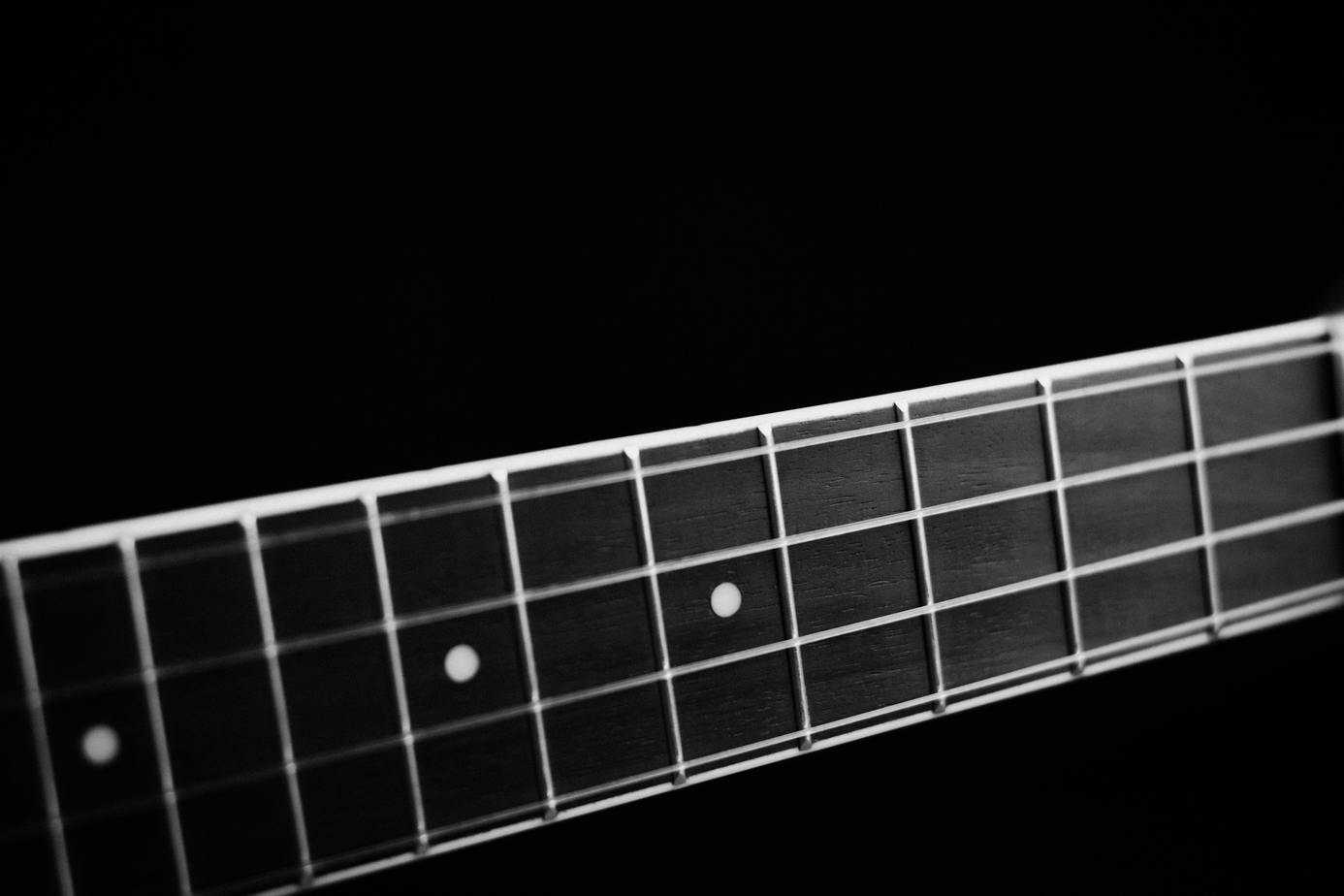
If you’re like most guitarists, you know that fretboard cleaning is essential, but aren’t sure how to actually go about cleaning your guitar fretboard properly. You likely play for at least 30 minutes to an hour every day – whether that’s gigging, practicing, or just having fun jamming out.
And that’s great. The only problem is, all that sweat and oil from your hands eventually builds up on not only your guitar strings, but your guitar fretboard. After a while this “gunk” can really build up on your fretboard, particularly around the individual frets.
Why bother cleaning my fretboard? Do I really need to?
Not only does this fretboard gunk look kind of grody, but it actually can subtly affect the tone of your guitar, as well as its feel and playability. I certainly find myself more excited to play and practice when my strings and fretboard are clean as opposed to old and gunked up. I’m sure most of you feel the same way.
But aside from a clean fretboard being more enjoyable, your fretboard is actually the most important part of your guitar to clean frequently. Think about it: your fretboard gets subjected to more wear and use than any other area of your guitar. Excessive sweat and dust without any cleaning can cause permanent damage. Your salty sweat eventually dehydrates the wood, which can lead to permanent marks or even cracks.
That’s why in this blog I want to discuss all aspects of fretboard cleaning, including:
- Preventative measures / hacks to stop gunk build-up on your frets
- The best way to clean the fretboard in terms of technique/approach
- What to use to clean the fretboard (fretboard oil? water?)
- An important difference between maple and rosewood fretboards
- How often should you clean your fretboard?
So if you want to get even more enjoyment out of your acoustic or electric guitar by having a smooth, clean fretboard, then keep reading! We’ll kick things off with some preventative measures.
Preventative Measures
As the old saying goes, “an ounce of prevention is worth a pound of cure.” Believe it or not, this cliched wisdom does apply to fretboard cleaning.
I’ve found that by taking a few simple preventative measures, I can greatly extend the life of my strings and my fretboard before they get gunked up and need another cleaning. Here’s a few tips to help you do the same:
Wash Your Hands Before Playing Guitar
…I told you these were simple, right? Still, this is one of the most effective things you can do to prevent gunk build-up and a dirty guitar fretboard.
And yet: 90% of guitarists still don’t do this!
Whenever you play guitar, the oils and sweat and whatever else is on your hands will find its way onto the strings, the back of your guitar neck, and eventually onto the fretboard. By cleaning your hands before you play, you’re effectively helping to stop this grime build-up at the source.
Wipe Down Your Guitar After Playing It
This hack to stop gunk build-up on your frets is as simple as the previous one. After you’ve finished jamming out, simply wipe down the strings/fretboard of your guitar, as well as the back of the neck.
Now, any oils that were still on your hands that may have made their way onto the strings or fretboard during your practice session have largely been removed.
A plush microfiber cloth tends to work best for this, but hey, if you’re in a pinch, just grab a washcloth, rag, or even paper towels. Anything to keep that gunk from settling into your fretboard.
That said, prevention only gets you so far. What do you do when your guitar fretboard is finally in need of a good cleaning?
The Best Way to Clean Your Guitar Fretboard (And How Often)
In general, I recommend cleaning your fretboard every time you change your strings. Not only does this encourage you to do it frequently, but taking your strings off is actually the first step of the fretboard cleaning process. So by cleaning your fretboard every time you’ve already decided to take your old strings off, you’re killing two birds with one stone.
So with that said, let’s tackle the worst case scenario first: what if you’ve let a few string-changes go by without giving your fretboard any love? Or you’ve been lazy and let a lot of excess gunk build up on your fretboard? In this case, simply going at the fretboard with a polishing cloth won’t do it. You’d be there all day.
If you’ve got a lot of dried up dirt and sweat on your fretboard, your best bet is to use very fine steel wool. If on the other hand, the grime on your guitar fretboard is minimal, you may be able to scrub it off with a damp polishing cloth.
Cleaning Your Fretboard With Steel Wool
Steel wool is great for deep-cleaning your guitar fretboard, and also polishing up any dirty or worn-down frets.
Just as a reminder, we’re talking very fine steel wool here. 0000 Steel Wool is best. If you go for too coarse of a wool it can damage your fretboard.
The only thing with steel wool, is it can be a bit messy. Consider taping over your sound hole, or putting a cloth or shirt over it to prevent the steel wool particles from going where they don’t belong.
After you’ve done so, gently rub the wool into your fretboard, targeting that pesky grime. When you’ve finished, wipe away any debris and make sure the surface of your fretboard and guitar is clear.
Conditioning the Fretboard – Should You Use Oil or Water?
Now that you’ve gotten all the dirt and dust build-up off your guitar fretboard, it’s time to condition the wood itself.
Remember how I said the salt from your sweat dries out the fretboard wood, and can cause cracks? Well, conditioning the wood with a high quality oil ensures it’s properly moisturized and will remain healthy going forward.
Dunlop makes a variety of nice oils for just this purpose. Their lemon oil is particularly popular, especially if you enjoy the smell of lemons. Simply apply the oil to your fretboard with a damp cloth. Don’t use too much though, a little of the oil truly goes a long way.
In fact, using too much oil or oiling too often can cause its own maintenance issues. Use just a little bit of oil, and don’t apply oil everytime you clean your fretboard. Contrary to popular belief and practice, you really only need to apply fretboard oil once a year or so, or if the fretboard looks very dried out and in need of moisture. If your guitar fretboard looks moist enough, just give it a quick polish with a water-dampened cloth. You don’t have to use oil every time. Save it for deep cleans, or when your fretboard seems overly dry.
Cleaning Rosewood vs Maple Fretboards
Fretboard oil is particularly important for rosewood fretboards. This is because rosewood is unfinished, and soaks up whatever is applied to its surface.
If however your fretboard is made of finished wood (you can usually tell because it will have a subtle natural gloss or shine already) – simply use a damp cloth with some water rather than fretboard oil.
Maple fretboards, for example, are very popular on electric guitars, and do not require fretboard cleaning oil.
Get Those Strings Back On!
Great job! At this point your fretboard should be looking as good as new. All you need to do at this point is get those guitar strings back on and get back to playing your guitar.
In all seriousness though – do try to get your strings back on as soon as you reasonably can. Leaving your guitar unstrung for too long can potentially cause warping issues, as your guitar neck is used to having the pressures that those strings are exerting on it.
Summary
Now you know the best way to clean your acoustic guitar or electric guitar fretboard. You can get a lot more mileage out of your strings and fretboard by taking easy preventative measures like washing your hands before you play, and wiping your guitar down afterwards.
In general, it’s best to perform a light fretboard cleaning every time you change your strings. If the fretboard really dries out though, then some high quality fretboard oil might be helpful if your guitar has a rosewood fretboard. If a lot of gunk builds up, you can save yourself some time by cleaning your fretboard with some 0000 steel wool.
After you’re finished cleaning your guitar fretboard, simply slap some strings back on that sucker and start playing! Thanks for reading, and as always, happy picking!
